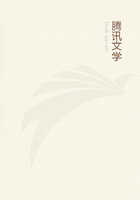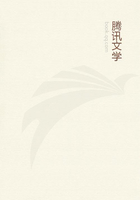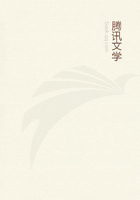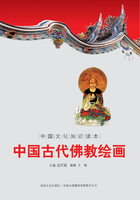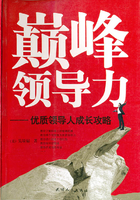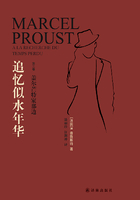§6."But," it will be objected, "even if we are justified in pushing the organic analogy so far as to claim the existence of a real social life with a meaning and end of its own, superior to that of the individual, as the life of every organism is superior to that of its organs and cells, that larger social being can only remain a shadowy or hypothetical being to actual men and women.And it is the aims, ideas, feelings and activities of these little units that, after all, will always absorb our attention and occupy our hearts and minds."Here is the final quintessence of individualism surviving in many professing socialists, the denial of the existence of a rational moral society.Yet such a society exists.The earliest beginnings of animal gregariousness, sexual feelings, and other primary instincts of association, with the mutual aid they give rise to, are a first testimony to the existence, even at the opening of the human era, of a real though rudimentary society, physical and psychical in its nature.Civilisation has its chief meaning in the extension and growing realisation of this unity of Society, by utilising these secret threads of social feeling for the weaving of the fabric of social institutions.Thus, through these instruments of common social life, language, art, science, industry, politics, religion, society gathers a larger, more solid and various life.Race, Nationality, Church, the bond of some common interest in a science, an art, a philanthropic purpose, often present intense examples of genuinely common life and purpose.These are not mere social contracts of free individuals, seeking by cooperation to forward their individual ends.Such a conception of mutual aid is as false for religion, science, art or industry, as for politics.The statement that 'man is a social animal' cannot merely signify that among man's equipment of feelings and ideas there exists a feeling and idea of sympathy with other men.That is only how it looks from the standpoint of the cell.It means that humanity in all its various aggregations is a social stuff, and that whatever forms of coalescence it assumes, i.e., a nation, caste, church, party, etc., there will exist a genuinely organic unity, a central or general life, strong or weak, but, so far as it goes, to be considered as distinct from and dominant over the life and aim of its members.
This central life, though distinguishable from the lives of its members, as an object of thought and will, is yet only lived in and through the life of the organs and cells.This is the subtle nature of the organic bond.
We are told indeed that "Society only exists in individuals." This, however, is only true in the same restricted sense in which it is true that an animal organism only exists in the life of its cells.There is nothing but the cells plus their organic cooperation.But I should rather say that the organism exists in the cooperation of the cells.So I should say that Society exists in the cooperation of individuals.
This is not a matter of theoretic accuracy of statement, but of immense practical significance.For the future progress of the arts of social conduct, especially of industry and politics, must largely depend upon the measure and manner of acceptance of this view of the nature of Society.It must, indeed, to the individual mind always remain as a hypothesis, incapable of full and exact verification.For such verification would imply an absolute merging of individual personality in the social unity.Such a public spirit can never absorb and displace private spirits.But the hypothesis may, for all that, possess both intellectual and emotional validity.Its clear provisional acceptance will not only explain many of the difficulties and reconcile many of the discrepancies in those tendencies, industrial and political, which are generally accepted as making for human progress, but will afford increased economy of direction and of motive.For once let us realise Society as possessing a unity and a life of its own, to the furtherance of which each of us contributes in the pursuance of the particular life we call 'our own,' the so-called sacrifices we are called upon to make for that larger life will be considered no longer encroachments on but enlargements of our personality.We shall come in larger measure to identify our aims and ends willingly with the aims and ends we impute to society, and every step in that public conduct will enrich or strengthen that social sympathy which we shall recognise to be the very life of society flowing in our veins.This is the spirit of social reform, as distinguished from the concrete measures of reform.Upon the creation and recognition of this spirit the possibility, the usefulness, the durability of every one of the institutions and policies, which are evolved by modern civilisation, depend.It is, therefore, of supreme and critical importance to obtain the widest possible acceptance of the conception of Society as a living being to which each of us 'belongs,' a being capable of thinking and feeling through us for itself, and of desiring, pursuing and attaining ends which are its ends, and which we are capable of helping to realise.So long as Society is spoken of and thought of as an abstraction, no social conduct can be sound or safe.For an abstraction is incapable of calling forth our reverence, regard or love.And until we attribute to Society such a form and degree of 'personality' as can evoke in us those interests and emotions which personality alone can win, the social will will not be able to perform great works.
The final claim we make for the human valuation of industry presented here is that it helps to bring into clear relief a set of human problems which, from the conception of society as a mere arrangement for securing individual ends, are perceived to be insoluble, but for which reason and emotion alike demand a satisfactory solution.Only by substituting for the attainment of individual welfare the ideal and the standard of social welfare, are we able to obtain a method of analysis and valuation which furnishes satisfactory solutions to the problems that industry presents.

